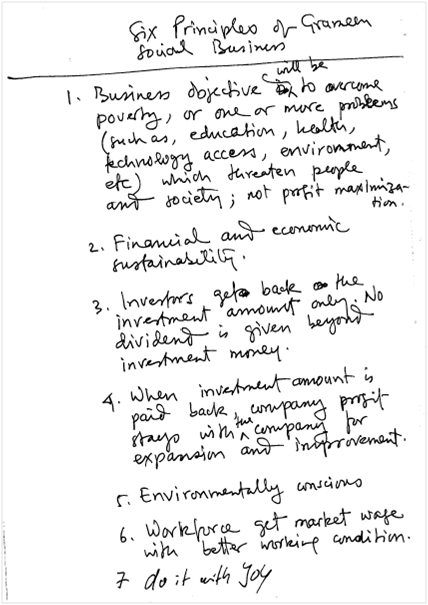The Dilemmas of a Social Business
Is profit bad? Is profit worth more or less than social impact? All social businesses must essentially grapple with five such existential dilemmas.

A SOCIAL BUSINESS
The term itself adequately conveys the paradoxical nature of institutions structured as social enterprises. They are known through a handful of other names such as socially responsible businesses, impact ventures, B Corps, etc. but they all compulsorily subscribe to the mandate of conscious capitalism.
Conscious capitalism is the conviction that an institution’s purpose to exist is not rooted in the singular pursuit of profit. They exist to serve their communities in every way possible.
Conscious capitalism is already a non-negotiable tenet for individuals and organizations in some parts of the world, and will become the global reality within the next decade. But as this shift occurs, more and more entities will be forced to shed their profit-only business structure and include a social responsibility mechanism to validate their economic performance.
THE SEVEN PRINCIPLES
Professor Muhammad Yunus and Hans Reitz, co-founders of the Grameen Creative Lab, collaborated to arrive at the seven fundamental principles that define any social business. And although these principles have lent some sort of regulatory framework to this complex landscape they have simultaneously curtailed the flexibility of social businesses to scale and evolve their business models as they see fit.

1. Business Objectives: Business objective will be to overcome poverty, or one or more problems (such as education, health, technology access, and environment) which threaten people and society; not profit maximization.
2. Sustainability: Financial and economic sustainability.
3. Investment: Investors get back their investment amount only. No dividend is given beyond investment money.
4. Profit: When investment amount is paid back, company profit stays with the company for expansion and improvement.
5. Conscious: Gender sensitive and environmentally conscious.
6. Workforce: Workforce gets market wage with better working conditions.
7. Joy: Do it with joy.

THE FIVE DILEMMAS
All social businesses must essentially grapple with five existential dilemmas. The pressure of these dilemmas varies greatly with scale, growth, economic trends, government regulations, etc. but at no point in time do they completely cease to exist. These five dilemmas are -
1. Orientation: Is profit bad? Is profit worth more or less than social impact?
2. Equilibrium: How can a social business balance its need for profit with its desire to do social good? Is there a perfect balance for these two opposing forces? Can a social business ever achieve this equilibrium?
3. Purpose: Are there unique benefits for social businesses to function with a blended purpose? How can these benefits be unlocked?
4. Responsibility: Does the combination of social and financial responsibility weigh social businesses down or accelerate its functions? Who are they more responsible towards — customers, workforce, community or shareholders?
5. Accountability: Should social businesses be held accountable to higher or lower standards of financial and social performance? Why?